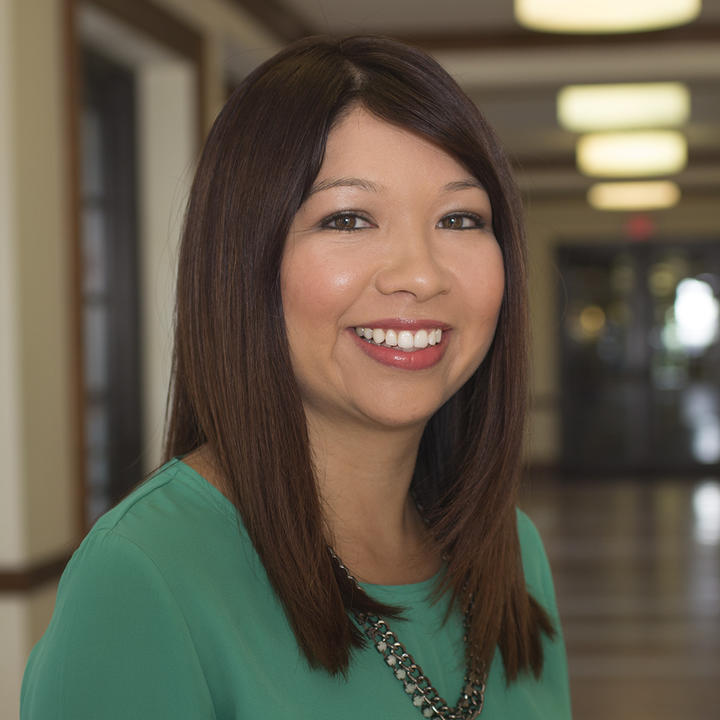Ph.D. Area Advisor - Accounting
Accounting Ph.D.
Earn A Ph.D. In Business and a Major Concentration in Accounting And Learn The Essentials In Theory, Research Methods And Contemporary Accounting Issues
Accounting Research involves the systematic and scientific study of accounting systems, institutions, standards and regulations for the purpose of understanding and characterizing their decision-facilitating and decision-influencing roles within organizations, in product and capital markets, and across economies.
For instance, financial reporting systems play many roles in publicly held organizations characterized by separation of ownership from control. They help investors in valuing their claims to firms in financial markets (valuation role), are essential for corporate control and managerial performance evaluation (auditing, governance and stewardship roles), and impact how firms allocate their resources and make financial decisions (real effects).
In a similar vein, management accounting systems facilitate planning and control within organizations. Often, these many roles of accounting information interact, posing challenges for system designers, policy makers, and standard setters.
Program Overview
The main goal of the accounting doctoral program is to train students to do high-quality research, and become influential scholars in top academic institutions. The accounting group has world-class senior faculty and young, talented scholars with considerable expertise in the above topics and a vibrant research environment.
In addition, the program leverages the resources and excellence of Rice University in related fields such as finance, economics and statistics. Students will be required to take courses in economics, statistics, econometrics, finance, and a rigorous set of cutting-edge research seminars covering the essentials in theory, research methods, and contemporary accounting issues.
Program Features:
- World-class faculty
- Engaging research environment
- Highly competitive financial package
- Resources of a premier research university
- Personal attention and mentoring in the Rice tradition
Program Information
Rice Business offers an outstanding program for doctoral students interested in accounting.
-
Overview of Accounting Ph.D. Seminar Series
Introduction to Accounting Research
The course offers a thorough and broad-ranging introduction to accounting theory and research. It covers origins and evolution of key relevant accounting institutions, thought, paradigms and methods.Analytical Research
The course provides a thorough and comprehensive introduction into the key economic theories underlying a significant part of contemporary cutting edge accounting research. The course is designed to be sufficiently deep to support both students intent on pursuing analytical research and at the same time broad enough that students with an empirical orientation will gain a solid foundation.Empirical Research in Accounting
The course provides a thorough and comprehensive synthesis of empirical accounting research, covering the key “classic” papers in the major research areas, methodological issues and emerging areas within empirical accounting research.Advanced Contemporary Accounting Research
The course provides a more advanced treatment of cutting edge, predominantly empirical accounting research. Accordingly, the course content is expected to change frequently to reflect the current state of accounting research. -
Requirements
For doctoral students who have chosen accounting as their area, the PhD degree requirements are as follows.
Students must complete a review course in quantitative methods in the summer before the beginning of the first semester.
During the first two years of the program, students must take a minimum of three courses per semester. The chosen courses must be approved by the area PhD advisor.
The student is expected to complete at least four doctoral seminar courses organized in the accounting area during the student’s first two years in the PhD program and additional accounting doctoral seminars as required by the student’s advisor. The student may attend the same seminar more than once upon approval by the area PhD advisor or a faculty mentor/advisor.
The area PhD advisor will annually assign the student to one or more faculty members to provide research/teaching assistantship.
The student is expected to attend all research workshops (presentations of faculty members from other business schools that visit JGSB to present their research or internal presentations by JGSB faculty or PhD students) organized in the accounting area during the student’s tenure in the PhD program. The student is expected to actively contribute to the workshop discussions, especially as their tenure in the program increases. In preparation for such workshops, students must take turns to lead pre-workshop discussions among the students. The PhD students in the program will designate a senior PhD student to keep track of this requirement and provide a report to the advisor at the end of the spring semester.
Comprehensive exam: Students must pass a comprehensive exam administered by the accounting faculty at the end of the fall semester of the second year. Only students not on probation, who have successfully completed the first-year summer research work (see below) and with a satisfactory annual evaluation, are eligible to take the comprehensive exam. The exam will be jointly administered and graded by the accounting faculty involved in teaching PhD courses under the supervision of the area PhD advisor. The exam is focused on the coursework taken in accounting and topics covered in research workshops offered by the accounting area. To satisfy the comprehensive exam requirement, the student must demonstrate their competency in accounting research, which lays the foundation for their dissertation research and academic career.
During the summers following each of the first two academic years, students are expected to be fully engaged in research. The details are as follows:
First-year summer research work: The purpose of the first-year summer research work is to help a student develop the ability to identify good research questions in the student’s area of interest and to acquire necessary methodological expertise. It could involve working on new ideas in specific topics and/or undertaking a thorough literature review with a focus on developing methodological (analytical/empirical) skills. We strongly encourage students to perform directed replications of relevant existing findings in their chosen topics as part of their summer research work. That said, the overall scope of this work is to be determined jointly by the student and the student’s faculty mentor/faculty advisor. The area PhD advisor will appoint a faculty mentor/advisor in consultation with the student. The summer work must be presented to accounting faculty at a research workshop/brownbag before the end of the fall semester of the second academic year. Each student is responsible for working with the area PhD advisor to schedule their research presentation. The content and format of this presentation will be determined by the student’s faculty mentor/summer research advisor. Unsatisfactory performance may result in the student being put on probation.
Second-year summer research work/Third-year research requirement: The student is expected to devote the second-year summer to writing an original, solo-authored research paper. The following rules will apply:
- The student must submit a draft proposal of the summer research work, and a copy of the Summer Research Paper Approval Form signed by the faculty mentor/advisor, to the area PhD advisor by June 1 following the student's second year in the program. The proposal should clearly describe the research question, the research framework and methodology, and the expected contribution to the relevant literature.
- The student must present a completed research paper at the accounting area research workshop by November 30th of the student’s third year in the program. Each student is responsible for working with the area PhD advisor to schedule their research presentation. The requirements for a passing evaluation of the second-year paper requirement include both demonstrated research ability as well as the ability to communicate the research in the presentation.
- Not completing this research requirement satisfactorily is grounds for the student being put on probation or dismissed from the doctoral program.
By June 30th of the third year in the program students must have a Jones School faculty member who has agreed to serve as their dissertation advisor. Students are expected to constitute their dissertation committee by October 1 of the fourth year in the program.
During the dissertation phase (post successfully completing the comprehensive exam), students are strongly encouraged to take one course every semester (from the first semester of the third year to the second semester of the fourth year) to advance their skills, communication, and knowledge in tools, techniques, and topics relevant to their area of interest/dissertation topic. Students are expected to select these courses in consultation with the area PhD advisor or faculty/dissertation advisor.
Throughout the program, students are expected to actively develop their oral and written communication skills to meet the high standards of the academic job market. Weak academic communication skills can nontrivially hinder a student’s ability to compete effectively for academic positions. The PhD program offers numerous opportunities for students to strengthen these skills, and each student is encouraged to take full advantage of them. Although the area PhD advisor and the faculty mentor/advisor are available to guide the students, each student must bear the ultimate responsibility for bettering their communication skills as a precursor to succeeding in the job market and beyond.
-
Summer before the beginning of first semester
Quantitative Methods Review
Year 1 (Fall)
ECON 501Microeconomic Theory I
ECON 510 Econometrics I
BUSI 530Introduction to Accounting Research
Workshop in Statistical Computing and Research
ElectiveYear 1 (Spring)
ECON 508 Microeconomics II
BUSI 532Analytical Research in Accounting
BUSI 533 Contemporary Accounting Research Topics
Workshop in Statistical Computing and Research
ElectiveYear 2 (Fall)
BUSI 531 Empirical Methods in Accounting
BUSI 523Empirical Methods in Finance
Elective
ElectiveYear 2 (Spring)
BUSI 532 Analytical Research in Accounting (suggested retake)
BUSI 533 Contemporary Accounting Research Topics (suggested retake)
Elective
ElectiveDoctoral students may continue taking graduate-level accounting courses beyond their second year as well. Examples of elective courses are:
General:
ECON 435: Industrial Organization
ECON 511: Econometrics II
ECON 514 Industrial Organization and Control
ECON 517 Empirical Industrial OrganizationAnalytical Track:
BUSI 510 Analytical Models in Marketing
ECON 502 Macroeconomics
ECON 505 Financial Economics
ECON 509 Topics in Microeconomics
ECON 575 Topics in Financial Economics
MATH 321 Introduction to Analysis I
MATH 515 Integration Theory
STAT 581 Mathematical Probability
STAT 552 Applied Stochastic ProcessesEmpirical Track:
BUSI 522 Corporate Finance
BUSI 511 Select Topics in Marketing
BUSI 524 Finance Special Topics
BUSI 527 Finance Special Topics
ECON 309 Applied Econometrics
ECON 578 Topics in Econometrics I
ECON 579 Topics in Econometrics II: Time Series Analysis
STAT 519 Statistical Inference
STAT 541 Multivariate Analysis -
2023
- Xiao Liu, Southern Methodist University
2021
- Daniela De la Parra Hurtado, University of North Carolina at Chapel Hill
2020
- Seung Yeol Lee, Southern Denmark
- Rustam Zufarov, University of Illinois at Chicago
2018
- Rafael Copat, University of Texas at Dallas
- Amoray Cragun, University of Chicago
- Gary Lind, University of Pittsburgh
2017
- Maclean Gaulin, University of Utah
- Jonathan Bonham, University of Chicago
Accounting Area Advisor
Ph.D. Area Advisor - Accounting

